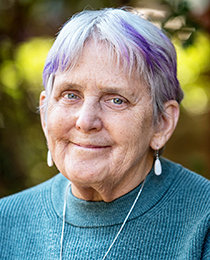COBRE Center for Sleep and Circadian Rhythms in Child and Adolescent Mental Health
COBRE Center for Sleep and Circadian Rhythms in Child and Adolescent Mental Health
The COBRE Center for Sleep and Circadian Rhythms in Child and Adolescent Mental Health, based at Bradley Hospital, is an NIH-funded research center with an explicit focus on sleep, circadian rhythms, and pediatric mental health. This COBRE is an interdisciplinary effort to link basic sleep and circadian rhythms research with mental health research and clinical care for children and adolescents. Along with providing mentorship to junior investigators, the center provides a comprehensive resource to support the growth of research in pediatric sleep, circadian rhythms, and mental health.
Bradley Hospital Sleep Research Laboratory
The E.P. Bradley Hospital Sleep Research Lab, directed by Mary A. Carskadon, PhD, is an internationally recognized center for research and sleep and development.
The Sleep Lab is located 15 minutes from the Bradley Hospital campus in two adjacent buildings on the campus of Butler Hospital on the East Side of Providence (300 and 400 Duncan Drive, Providence, RI). This setting is pleasant with trees, lawns, ample parking, and a congenial ambiance for in-lab assessments.
The main Sleep Lab building is a renovated structure that offers about 6,000 square feet of offices, a conference room, and two attic storage areas in addition to a full, four-bedroom sleep and chronobiology lab.
Each sleep lab bedroom is comfortably appointed and includes a tech-controlled climate, ambient lighting, full audio/ visual monitoring, as well as data acquisition systems. In addition to the bedrooms, the lower level includes a tech monitoring area, an activities space, and a small examination room.
The second building of the sleep lab, the “Annex,” also has additional offices and a large conference/ classroom equipped with audio-visual equipment, including a bidirectional webinar interface. Additionally, the Annex houses biospecimen processing equipment, additional freezer space, and soon a DNA extraction and ELISA lab.
Researchers have access to instrumentation, such as polysomnography, actigraphy, wearables, and light monitors to capture intensive data sets both in-lab and ambulatory, and the scoring protocols, software, and storage necessary for scoring and analyzing sleep and circadian data.
Research Team

Mary A. Carskadon, PhD
Director of Sleep and Chronobiology, Bradley Hospital’s Sleep and Chronobiology Lab
More
Jared M. Saletin, PhD
Associate Director, Bradley Hospital Sleep Research Laboratory; Director, Bradley Hospital Sleep and Circadian Rhythms Research Methods Core
More
David H. Barker, PhD
More
- Center for Translational Neuroscience
- COBRE Center for Sleep and Circadian Rhythms
- Early Childhood Research
- HIV Research Team
- InVita Research Lab
- Pediatric Anxiety Research Center (PARC)
- SUCCESS
- Medical Education and Training Programs
- Research Areas
- Meet Our Researchers
-
Current Studies
- Bradley Hospital Researchers Study How Sleep Impacts Childhood Achievement
- Bradley Hospital Sleep Experts Assess California’s Legislation for Later School Start Times
- Bradley Hospital Receives $10M to Establish Sleep, Circadian Rhythms Research Center
- InVita Research Program Examines Treatment for Suicidal Behavior among Hispanic/Latinx youth
- Study Tests Effect of Video Game on Impulse Control
- The Hidden Effects of the COVID-19 Pandemic on Children
- Support Our Research

